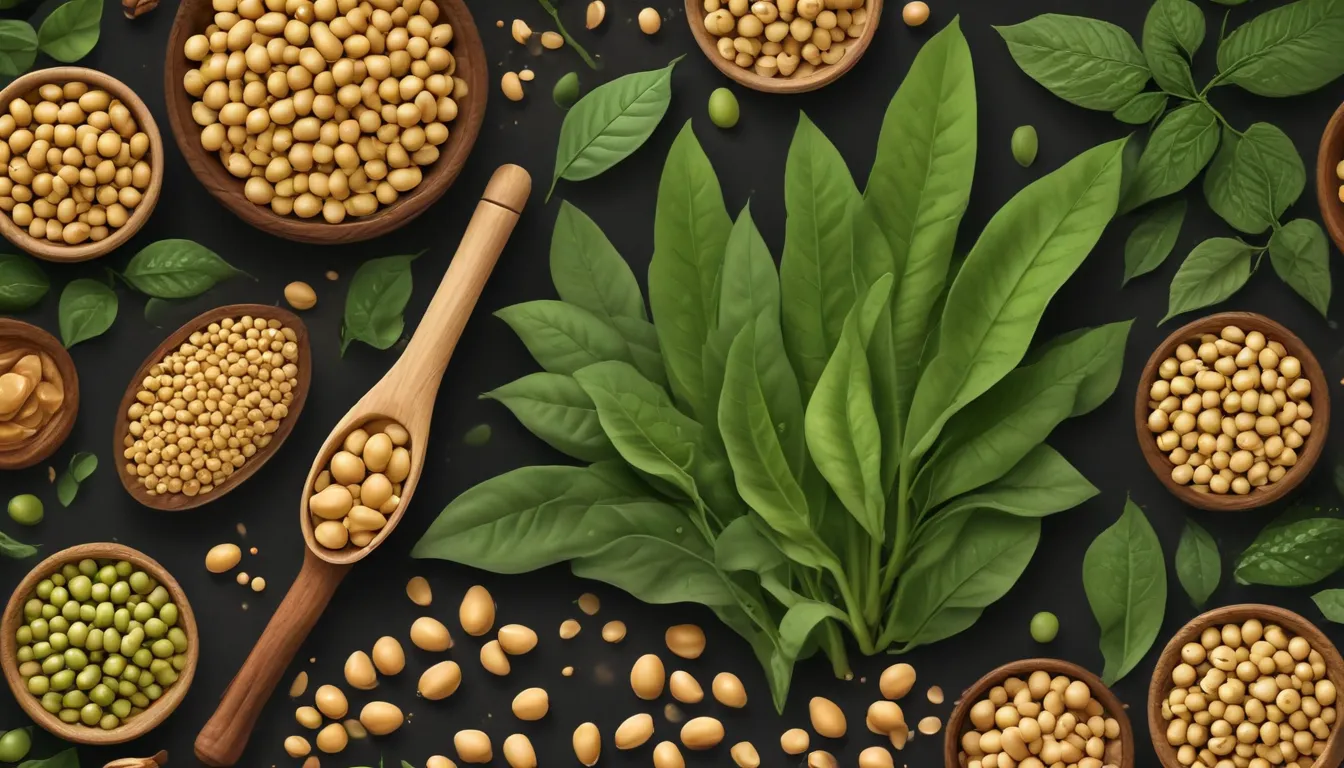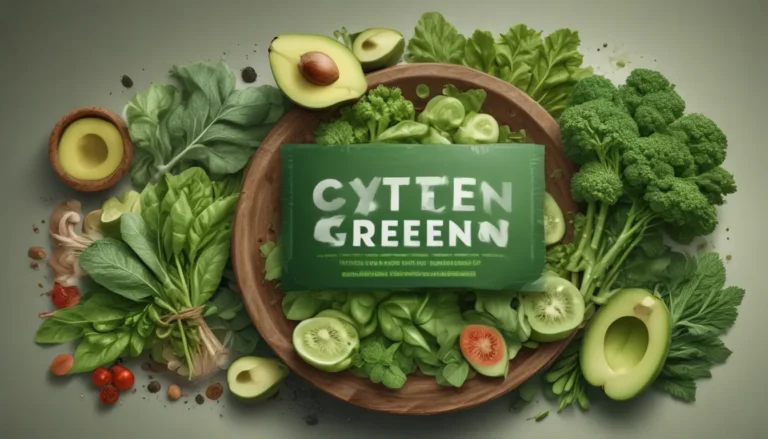The pictures in our articles might not always show exactly what the text is talking about. We use these images to make the article more interesting and eye-catching. They are there to add to the text, but not to replace it or show every detail.
Welcome to the fascinating world of soybeans! These versatile legumes, also known as Glycine max, have been a dietary staple for centuries across various cultures. Packed with essential nutrients and offering numerous health benefits, soybeans are truly a powerhouse ingredient in the world of nutrition. In this article, we will delve into the exciting realm of soybeans, exploring their nutritional value, fun facts, and potential advantages. So, sit back, relax, and prepare to be amazed by the mighty soybeans!
Exploring Soybeans
Soybeans, originating from East Asia and dating back thousands of years, belong to the legume family. Known for their high protein content and culinary versatility, soybeans are grown worldwide in countries like the United States, Brazil, and China, making them one of the most widely cultivated crops globally.
Appearance and Versatility
Soybeans come in various colors, including yellow, green, and black, and have an outer covering that is typically light brown. The inner part consists of two cotyledons or seed leaves. With numerous varieties boasting unique characteristics, flavor profiles, and uses, soybeans offer a world of possibilities in the culinary arena.
- Protein: Soybeans are an exceptional plant-based source of protein, containing all essential amino acids required for human health. With a complete protein profile, soybeans are an excellent option for individuals following vegetarian or vegan diets.
- Healthy Fats: Rich in polyunsaturated and monounsaturated fats, including omega-3 and omega-6 fatty acids, soybeans contribute to heart health and help reduce the risk of chronic diseases.
- Fiber: High in dietary fiber, soybeans aid digestion, promote satiety, and support a healthy gut, essential for maintaining overall digestive health.
- Vitamins and Minerals: A good source of essential vitamins and minerals like folate, vitamin K, potassium, phosphorus, and magnesium, soybeans play crucial roles in supporting overall health.
Benefits of Soybeans
Heart Health and Bone Health
The combination of high protein content and healthy fats in soybeans contributes to cardiovascular health, reducing LDL cholesterol levels, and improving overall lipid profiles. Moreover, isoflavones in soybeans, such as genistein and daidzein, support bone health, reducing the risk of osteoporosis and promoting bone density, especially in postmenopausal women.
Hormonal Balance and Digestive Health
Isoflavones found in soybeans act as phytoestrogens and may help alleviate menopausal symptoms like hot flashes and night sweats. Additionally, the fiber content in soybeans supports digestive health by promoting regular bowel movements and maintaining a healthy gut microbiome.
Weight Management and Culinary Versatility
Nutrient-dense and high in protein, soybeans are a satisfying food choice that can contribute to satiety, helping control appetite and potentially aiding with weight management goals. Their culinary versatility allows for endless possibilities, from popular soy-based products like tofu, tempeh, soy milk, and soy sauce to being used in various processed foods.
Environmental Considerations
While soybeans offer a host of health benefits, it's essential to consider their environmental impact. Due to their extensive cultivation, soybeans have been associated with deforestation and habitat destruction, particularly in regions like the Amazon rainforest. Choosing sustainably sourced soybeans is crucial to minimize ecological footprints and support responsible farming practices.
Fun Facts About Soybeans
- Long History: Cultivated in China for over 5,000 years, soybeans are one of the oldest domesticated crops in the world.
- Crop Versatility: Beyond food production, soybeans are also utilized in products like biodiesel, industrial lubricants, and even ink.
- Crop Rotation Benefits: Commonly used in crop rotation practices, soybeans enhance soil fertility by fixing nitrogen from the air, reducing the need for synthetic fertilizers.
- Record-Breaking Yields: In 2016, Brazil achieved a remarkable soybean yield of over 115 bushels per acre, showcasing the crop's productive potential.
- Incredible Protein Content: Soybeans contain approximately 36-56 grams of protein per 100 grams, making them one of the best plant-based protein sources.
Embracing the Power of Soybeans
In conclusion, soybeans are not just a nutritious legume but also a gateway to sustainable food production and health benefits. From their protein-rich composition to their potential impacts on heart health and hormonal balance, soybeans have captivated the attention of culinary enthusiasts and health-conscious individuals alike. So why not incorporate soybeans into your diet and explore the diverse array of delicious dishes they have to offer? Whether you're indulging in tofu, enjoying soy milk, or savoring soy-based treats, let the mighty soybeans bring joy and nourishment to your culinary adventures.
Frequently Asked Questions (FAQs) About Soybeans
Are soybeans suitable for individuals with soy allergies?
Individuals with soy allergies should avoid soybeans and soy-based products to prevent allergic reactions.
Can soybeans be enjoyed by people following a gluten-free diet?
Yes, soybeans are naturally gluten-free and safe for consumption by individuals following a gluten-free diet.
Are soybeans genetically modified?
Soybeans are commonly genetically modified, but organic or non-GMO certified options are available for those avoiding GMOs.
Can soybeans be enjoyed by individuals with lactose intolerance or dairy allergies?
Soy-based products like soy milk and tofu are suitable alternatives for individuals with lactose intolerance or dairy allergies.
How can I incorporate soybeans into my diet?
There are numerous ways to enjoy soybeans, from tofu stir-fries to soy milk smoothies, offering a versatile and nutritious addition to your meals.
Explore the world of soybeans and unlock a treasure trove of health benefits and culinary delights. With their rich protein content, heart-healthy fats, and versatile applications, soybeans are a valuable addition to any diet. Let the mighty soybeans inspire your culinary creations and nourish your body with their nutritious offerings.






